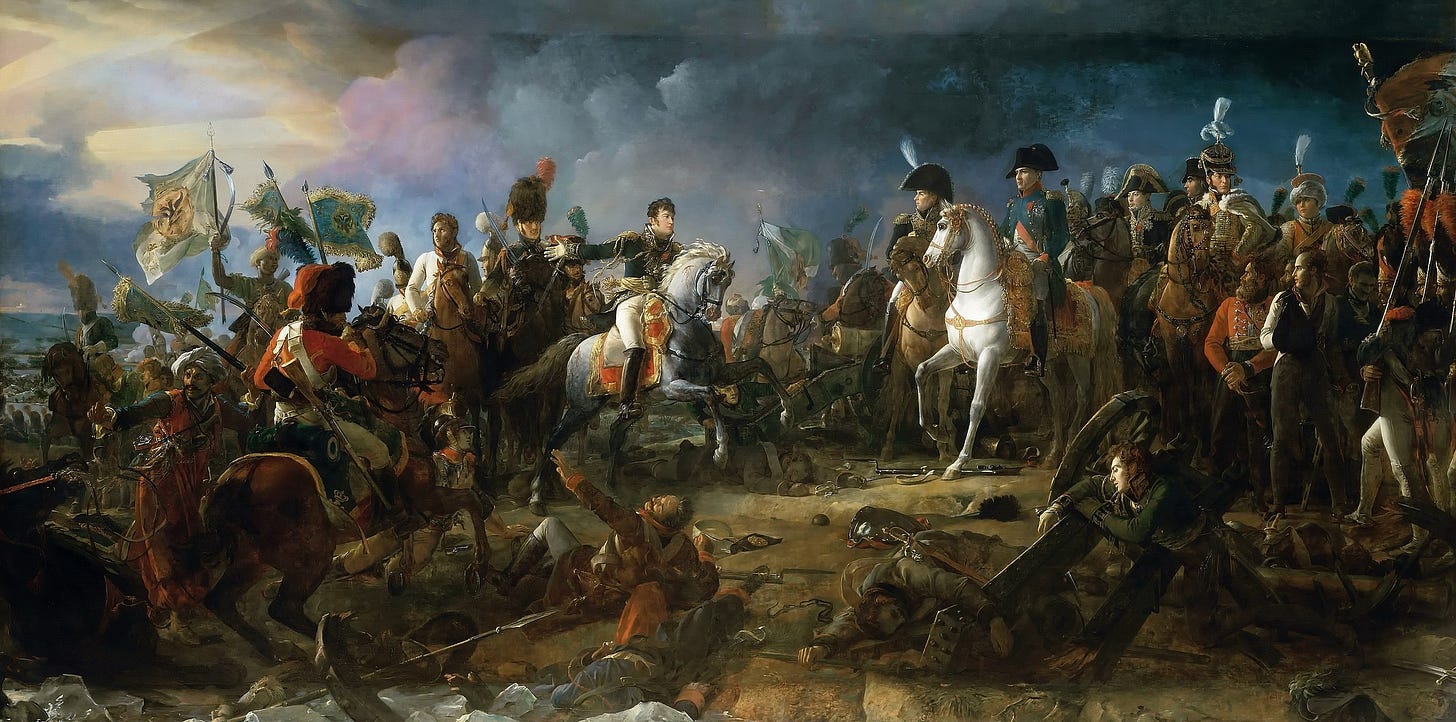Today in History: November 30-December 2
Friends, today is your final day to take advantage of Foreign Exchanges’ Thanksgiving week 25% off sale! If you’ve been thinking about subscribing this is the time to do it!
(Also, we’ll be back to a normal schedule tomorrow.)
November 30, 1853: The Battle of Sinop
November 30, 1947: Palestinian gunmen attack several buses carrying Jewish passengers across Mandatory Palestine. The attack was a response to the United Nations General Assembly’s adoption of its partition plan for Palestine the day before and began a five and a half month long period of paramilitary clashes and terrorist attacks between Jews and Arabs, essentially a “civil war” within the British colony. That conflict “ended,” along with the UK’s mandate, in May 1948, when Arab League forces invaded Israel-Palestine and the civil conflict became the Arab-Israeli War.
November 30, 1966: Barbados gains independence from the United Kingdom.
December 1, 1640: Portuguese nobles declare John (João) IV (d. 1656) their new king, which also meant they were declaring an end to the 60 year old Iberian Union and no longer considered themselves to be under the rule of Spanish King Philip IV (d. 1665). The result was the 1640-1668 Portuguese Restoration War, which I assume we can all agree ended with a Portuguese victory and confirmation of the new monarchy.
December 1, 1918: The “South Slavic” (Slovenian and Croatian) parts of Austria-Hungary are united with Serbia and Montenegro as the “Kingdom of Serbs, Croats, and Slovenes.” This name was changed in 1929 to the “Kingdom of Yugoslavia” and again after World War II to the Socialist Federal Republic of Yugoslavia. This experiment in dueling nationalisms broke apart altogether in the 1990s.
December 1, 1955: Rosa Parks’ refusal to give up her seat on the bus to a white passenger leads to the Montgomery Bus Boycott, one of the largest direct actions against racial segregation in US history. In addition to boycotting the bus system and engaging in strikes and protests, civil rights groups sued in court and won a landmark victory in the case of Browder v. Gayle, in which the Supreme Court ruled that Alabama’s public transit segregation laws were unconstitutional. A young local pastor named Martin Luther King emerged as one of the leaders of the boycott movement and this propelled him to national prominence as a civil rights activist.
December 2, 1805: At the Battle of Austerlitz, Napoleon wins arguably his greatest victory against a larger joint Russian-Austrian army. Napoleon engaged in a days-long psychological campaign of feigned retreats and panicky requests for peace talks intended to make his enemies overconfident, culminating with the deliberate weakening of his right flank in order to sucker the Allies into attacking him there. They did, weakening their own center in the process. Napoleon then sent his own army through the Allied center, breaking the Allied line in two and sending both flanks into a disorderly retreat. The Allies suffered 36,000 dead/wounded/captured compared with only 9000 for the French. The victory was so complete that not only did it end the War of the Third Coalition, it allowed Napoleon to create the Confederation of the Rhine among the German states that had become French clients. The following year, because of the new confederation, Emperor Francis II had to dissolve the Holy Roman Empire, which had been in existence continuously since 962 and traced its origins back to Charlemagne’s coronation as emperor in 800.

The Battle of Austerlitz, 2nd December 1805, by French painter François Gérard (Wikimedia Commons)
December 2, 1823: US President James Monroe proclaims his famous Doctrine, which stated that the US would not interfere in European affairs nor in the affairs of any European colonies, but that any European attack on an independent state in the Americas would be viewed as an act of hostility against the United States. Over the almost two centuries since, the Monroe Doctrine has become the basis of a US foreign policy that regards Latin America not just as under US protection, but as a US playground. As you might imagine this has worked out wonderfully for the people of Latin America.
December 2, 1942: Enrico Fermi and his team create the first self-sustaining nuclear reaction at “Chicago Pile-1,” a rudimentary reactor built under the campus of the University of Chicago. This was the first milestone achievement for the Manhattan Project in its race to build a nuclear bomb before Nazi Germany could build one.
December 2, 1950: The Chinese army achieves a decisive victory over UN forces at the Battle of the Ch'ongch'on River. The battle drove US and allied military forces out of North Korea altogether. A Chinese offensive into South Korea the following year did not go well and the Korean War settled into a stalemate until finally being frozen under the Korean Armistice Agreement in 1953.
December 2, 1971: Six small Persian Gulf emirates—Abu Dhabi, Ajman, Dubai, Fujairah, Sharjah, and Umm al-Quwain—cease to be UK protectorates and collectively form the United Arab Emirates. A seventh emirate, Ras al-Khaimah, held out at first but quickly agreed to come on board the following February. Commemorated as UAE National Day.
December 2, 1975: The Pathet Lao ousts King Sisavang Vatthana and proclaims the founding of the Lao People's Democratic Republic, ending the 1959-1975 Laotian Civil War. Commemorated today as Lao National Day.

